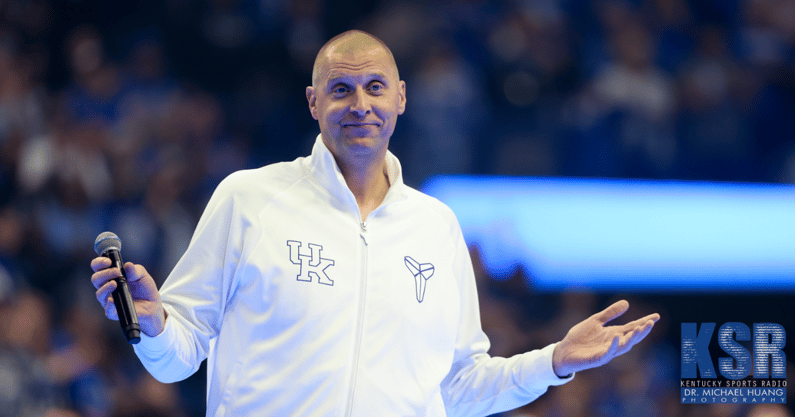Evaluating Mark Pope’s First Year at Kentucky: Can He Address the Wildcats’ Offensive Rebounding Concerns in Year Two?
Mark Pope’s inaugural season as head coach of the Kentucky Wildcats men’s basketball team was marked by notable achievements and challenges. While the team showcased significant improvements, one area that remained a concern was offensive rebounding. In this analysis, we delve into the team’s performance in this aspect, Pope’s strategies to address it, and the prospects for improvement in the upcoming season.
Under Pope’s leadership, Kentucky achieved a commendable 24-12 record, advancing to the Sweet 16 of the NCAA Tournament for the first time since 2019. The team secured impressive victories over top-ranked opponents such as Duke, Florida, and Tennessee, demonstrating resilience and adaptability. Pope’s emphasis on a fast-paced offense and three-point shooting transformed the Wildcats into one of the nation’s top offensive teams. However, despite these successes, the team struggled with offensive rebounding, a critical component for sustained offensive pressure and second-chance opportunities.
Pope identified offensive rebounding as a key area for improvement early in the season. He set a benchmark of achieving a 30% offensive rebound percentage, aiming for 14 offensive rebounds per game. However, the team consistently fell short of these targets, averaging just over 10 offensive rebounds per game. This shortfall was particularly evident during high-profile matchups and conference play, where the lack of second-chance opportunities became more pronounced.
The Wildcats’ offensive system, characterized by a high volume of three-point attempts, contributed to the rebounding challenges. Missed three-pointers often resulted in long rebounds, reducing the team’s ability to secure offensive boards. Pope acknowledged that without effective offensive rebounding, the team’s fast-paced offense lacked staying power, especially against stronger opponents.
In response to these challenges, Pope made strategic adjustments to the roster. He secured the commitments of top-rated defenders and rebounders, including Jayden Quaintance and Mohamed Dioubate, both ranked in the top five for defensive rating. These additions were expected to enhance the team’s defensive schemes and improve rim protection, indirectly benefiting offensive rebounding by limiting opponents’ scoring opportunities.
Additionally, Pope’s meticulous approach to scouting and preparation played a role in addressing the rebounding issue. By ensuring players were well-prepared and understood their roles, Pope aimed to enhance team cohesion and accountability, factors that contribute to improved rebounding performance.
Looking ahead to the 2025-2026 season, the Wildcats’ prospects for improving offensive rebounding appear promising. The integration of new players with strong rebounding abilities, combined with Pope’s strategic adjustments, positions the team to address this critical area. Furthermore, Pope’s emphasis on preparation and accountability is expected to foster a culture that prioritizes rebounding as a fundamental aspect of the team’s success.
In conclusion, while offensive rebounding was a challenge during Pope’s first season at Kentucky, the steps taken to address this issue suggest a positive trajectory. With continued focus and strategic adjustments, the Wildcats have the potential to enhance their performance in this area, contributing to their overall success in the upcoming season.



